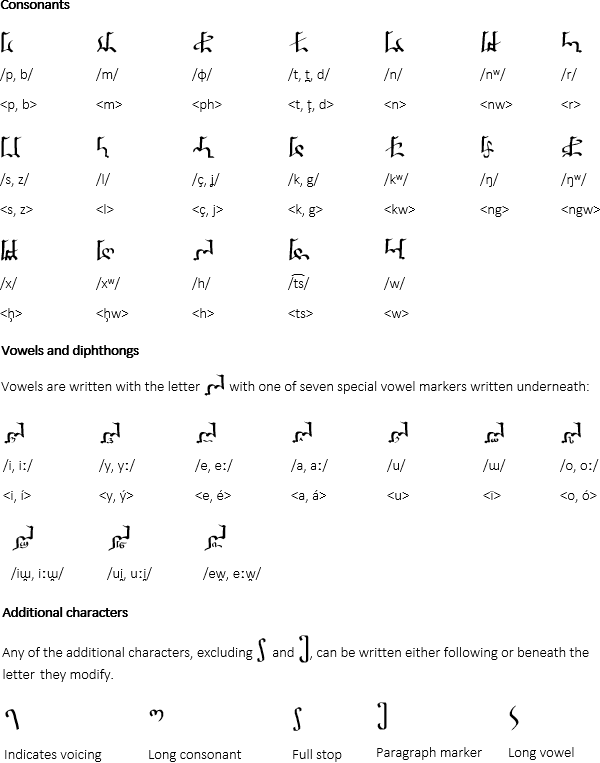The T̹ejý script was invented by Elijah Martin to write Atsécï, a conlang appearing in his fantasy novel, Blood of the Serpent. Atsécï is spoken by the people of Íkelos, known to their enemies as the Profane. The writing system first appeared during the War of the Blood, a conflict between the Profane, humanity and the gods, when it was created to write Atsécï by the Profane's first emperor, the Dark Lord. The writing system was accepted and is still in common use. The name "t̹ejý" means "the strokes," composed of "t̹ej," meaning "stroke" or "marking," and the definite plural article -ý.


We! h̹iz tsevirsin aseçu, saphros çoz, iz ré tseviratsoj.
Our father, who art in Heaven, hallowed be they name.
(lit. "O our holy father, dwelling in Heaven, your name is sacred.")
Constructed scripts for: Ainu | Arabic | Chinese languages | Dutch | English | Hawaiian | Hungarian | Japanese | Korean | Lingala | Malay & Indonesian | Persian | Tagalog / Filipino | Russian | Sanskrit | Spanish | Taino | Turkish | Vietnamese | Welsh | Other natural languages | Colour-based scripts | Tactile scripts | Phonetic/universal scripts | Constructed scripts for constructed languages | Adaptations of existing alphabets | Fictional alphabets | Magical alphabets | A-Z index | How to submit a constructed script
[top]
You can support this site by Buying Me A Coffee, and if you like what you see on this page, you can use the buttons below to share it with people you know.

If you like this site and find it useful, you can support it by making a donation via PayPal or Patreon, or by contributing in other ways. Omniglot is how I make my living.
Note: all links on this site to Amazon.com, Amazon.co.uk
and Amazon.fr
are affiliate links. This means I earn a commission if you click on any of them and buy something. So by clicking on these links you can help to support this site.
[top]